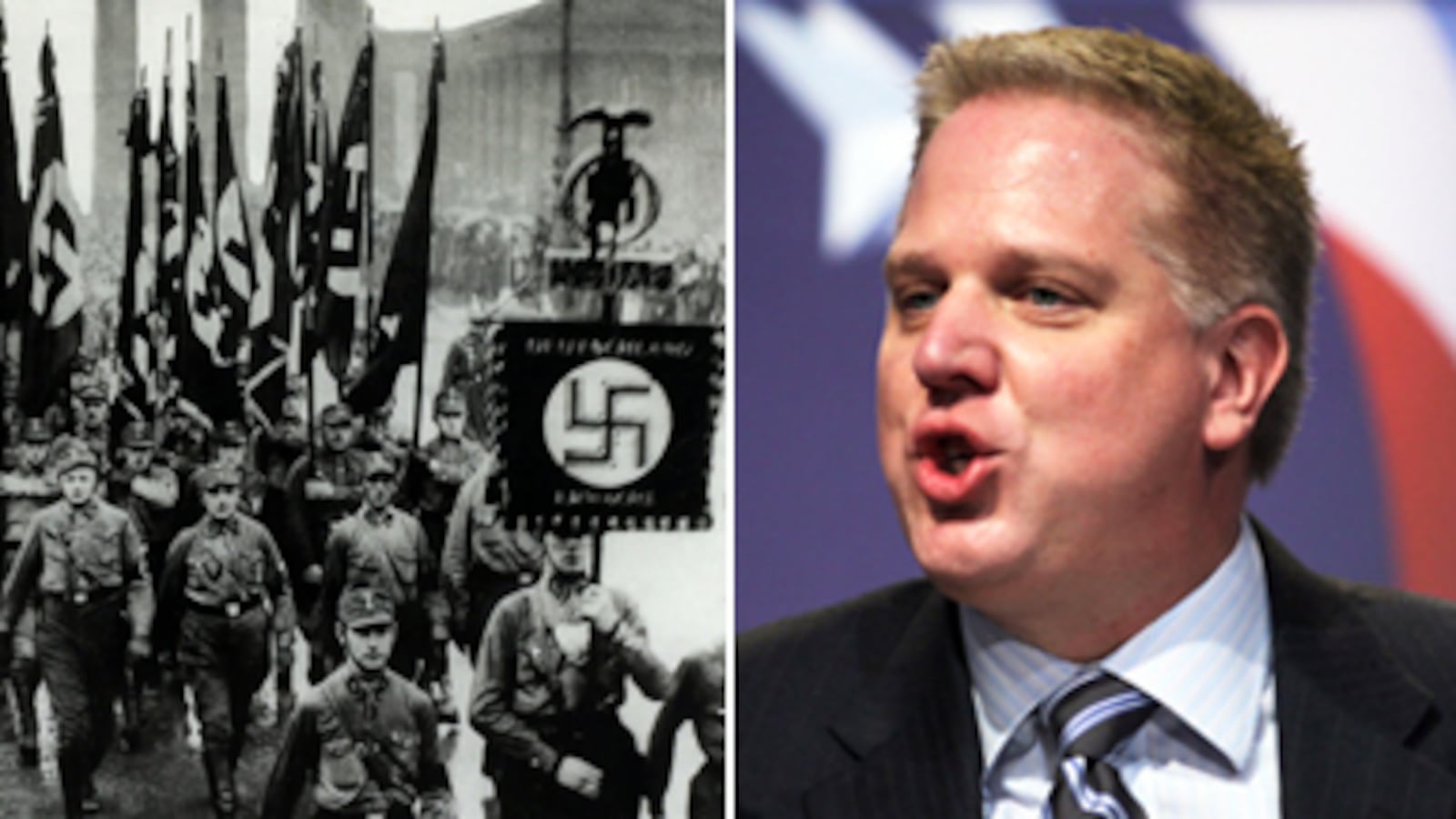Glenn Beck’s anti-George Soros tirade sounds very familiar to me. The Hungarian far right has been leveling those same charges for years, darkly hinting at the financier’s “omnipotence,” his ties to a global conspiracy, and his penchant for bringing down governments (soon our own!). In Hungary, everyone knows these are code words for anti-Semitism. To hear them repeated on our own airwaves in prime time is something else.

The trouble with George Soros is that, quite frankly, he doesn’t give a damn. Whether the slime is thrown from his former country or from Fox News, he rarely rises to the haters’ bait. Soros has experienced poison from demagogues more skilled (and more heavily armed) than Beck. In a life that has encompassed the most violent hatemongering of the 20th century—from fascism to communism—he flicks off this latest spray and keeps going.
I, however, find it impossible not to speak up when I hear the likes of Beck from the comfort of his armchair charge Soros with anti-Semitism. Beck paints Soros as a Nazi tool for having had the supreme nerve to survive Europe’s most violent Holocaust: the one that swept through Hungary under SS-Obersturmbannführer Adolf Eichmann during the summer and fall of 1944. Eichmann’s was a well-oiled machine by then, and he had to make quick work of Europe’s last remaining intact Jewish community. Even the most deluded Nazis knew the war was over, their cause lost. But Eichmann was determined to finish the job in Hungary. Only the most resourceful and the luckiest survived.
It is well known that the 14-year-old George Soros acted as a messenger of the Budapest Jewish Council, a group of aged and terrified elders who thought if they kept the city’s Jews calm, and followed the Gestapo’s every command, they might survive. Sent to alert Jews to report to various collection points around the city, the young Soros, prompted by his canny father, urged defiance instead. “There was one man I shall not forget,” Soros recalled, “I told him what my father had said. And he answered, ‘Tell your father that I am a law-abiding citizen, that I have always been a law-abiding citizen and that I am not going to start breaking the law now.'" We know how few of those law-abiding citizens survived Eichmann’s barbaric campaign to make Hungary Judenrein. The fact is that only by assuming false identities, through bribery and deception, could people survive that Kafkaesque nightmare. Andy Grove, the legendary founder of Intel, another young Budapest Jew, survived thus, as did my own parents. Raoul Wallenberg, the great Swedish humanitarian, performed his miracles in Budapest partly by forging passports and bribing Nazis.
But there is a danger that goes beyond George Soros in Beck’s demagoguery. Beck’s breathtaking ignorance of recent history might be laughable if it were not for one thing.
Soros played a vastly more historically significant role in ending communism, the nightmare that succeeded the Nazis. Beck depicts Soros as “the most powerful man on earth,” a man who can bring down governments. And Beck is absolutely right on that point. Does he have a clue as to which governments Soros has helped to bring down? I recall in the 1980s my Hungarian dissident friends telling me about this man Soros who was pumping oxygen into a suffocating system. It was in Budapest that he opened his first Open Society office in 1984. At a time when every typewriter had to be registered with the police, Soros smuggled in Xerox machines that soon made a mockery of the state’s tight control of information. Open Societies soon sprung up all over the Soviet empire. Toasting Soros’ 80th birthday last summer, Lord Mark Malloch Brown said four people brought down communism: Margaret Thatcher, Ronald Reagan, Pope John Paul II, and George Soros.
Perhaps Soros is immune to vilification. He seems to take a perverse pride in being the eternal outsider who “belongs to no club or associations.” But there is a danger that goes beyond George Soros in Beck’s demagoguery. Beck’s breathtaking ignorance of recent history might be laughable if it were not for one thing. He commands a huge audience of people who must surely trust him to know what he is talking about.
My Hungarian grandparents did not survive the Nazis, and my parents were jailed by the communists. I can still hear my father saying, “It always starts with words. Words matter.”
Kati Marton is an author and journalist who has reported for ABC News, National Public Radio as well as a number of print outlets. She received several honors for her reporting, including the George Foster Peabody Award. Her latest book is Enemies of the People: My Family's Journey to America.





